Vita Wells’s Field Note, as published in Places Journal’s Repair Manual, a series of essays and field notes from scholars and practitioners. November 2024
I write as a practitioner, feet on the ground, out doing in the world; yet also as a wanna-be intellectual; as a repair activist, investor, and artist; temperamentally pragmatic and spiritually inclined; joint degrees from management and divinity schools. What I have to say doesn’t suit many, but urgency compels pragmatism.
Regardless of its inherent antagonism toward healthy living systems, and despite legitimate calls for its demise, capitalism isn’t going away anytime soon, and time is short. In the immediate to medium term, fact is: enterprises will continue to pursue profit by following market demand and lowering costs within their regulatory environments. But we don’t have to live with capitalism as it’s currently practiced. We already have the tools to exploit capitalism’s machinery and channel its force away from growth-at-all-costs: social values shape how capitalism plays out. A society that values repair makes it part of successful business models, thereby bankrupting growth-based capitalism and moving toward resiliency-based capitalism. Repair is resiliency in action, and accelerating a cultural shift that normalizes repair is imperative.
When we citizens and consumers: 1) demand repairable goods; 2) favor products made of already used and repaired goods; and 3) enact regulations that protect the capacity to repair, enforce anti-trust laws, and flex taxing authority, then astute corporate managers will unshackle design, manufacturing, and marketing from growth-based consumerism, and instead direct employees to develop products and processes that enable customers to do what we want to do: take care of what we have.
Witness: 1) iFixit’s collaboration with the tech company Lenovo; 2) Patagonia’s Worn Wear; and 3) the passage of Right-to-Repair laws in California, Colorado, Minnesota, New York and Oregon.
When companies thrive by meeting customers’ demand for repair, skillful investment managers and bankers will provide them with cheaper capital. Investors will reap reasonable returns and bankers will be assured repayment. Supporting repair isn’t shareholder activism or community service. It’s exercising a fiduciary duty to invest and lend well.
As repair advocates, it’s our job to normalize repair through every channel available. Scholars, designers, journalists, politicians, religious leaders, educators, economists, corporate managers, small business owners … We’re all people going to local repair cafés and hootin’ and hollerin’ over successful fixes, celebrating what we know to be right and good, transforming our conceptual knowledge into experiential knowledge. This is fuel for action. Growth-based capitalism enflames precarity and suffering. The tools we have for bankrupting it are our values, forcefully realized in what we buy and how we govern. Every purchase, vote, investment, design, scholarly paper, sermon, loan, news article, class lesson … every one of these matters in cultivating a vibrant and pervasive culture of repair.
Capitalism isn’t going away, but the ecological crisis is sufficient to catalyze a paradigm shift if people perceive an accessible alternative, a narrative that offers some sense of security: resiliency-based capitalism, where repairing and reuse is unexceptional.
— Vita Wells
